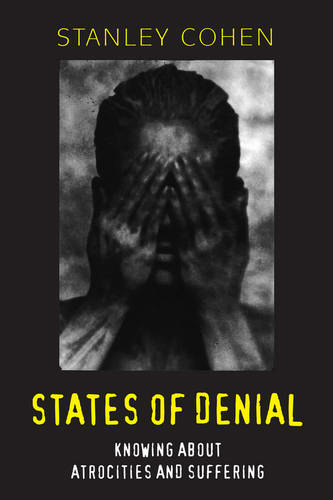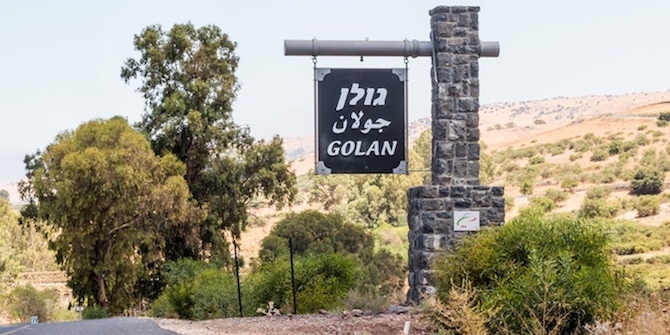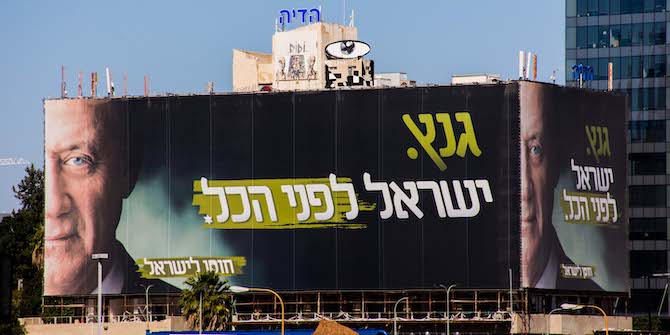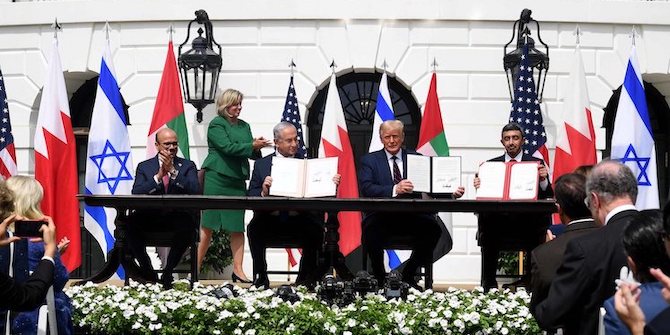by Judith Suissa

In a powerful recent piece in the London Review of Books, ‘Versions of Denial’, Conor Gearty draws on the work of my late father, Stanley Cohen, to analyse the denial of Israel’s violent human rights abuses and war crimes in Gaza and their reframing as regrettable but necessary acts of self-defence, and considers how this denial is used to justify the ongoing Israeli bombardment.
Gearty’s focus is on the mechanisms by which the discourse of denial has been ‘flipped’ so that ‘the Palestinians and their supporters find themselves having to prove to the world that things that did not happen actually did not happen − or not in the way Israel says they did.’
As Gearty notes, ‘It’s much harder for the Israeli authorities to pull off literal denial than it was before the existence of social media.’ This has long been the case regarding the daily human rights abuses of Palestinians living under Israeli occupation in the West Bank and Gaza. However, it also applies to human rights professors and LRB contributors, who surely cannot have completely failed to see the masses of online footage, some of it from webcams worn by the Hamas perpetrators of the atrocities of 7 October, of horrific sexual abuse, including genital mutilation; the photographic evidence of ‘manuals’ in Arabic found on terrorists’ bodies and in raids in Gaza, including glossaries with Hebrew phrases such as ‘take off your underwear’; the testimony by a captured terrorist that he was given permission to rape a girl’s corpse; and the footage of Gazan residents cheering as a vehicle was driven through the streets carrying a terrified, bound and bleeding young Israeli woman captured by terrorists on 7 October. Commentators like Gearty may be rightly cautious about some of the footage shared on social media or even in the mainstream press, but it is harder to disregard the measured statements by internationally respected legal scholars, such as Professor Ruth Halperin-Kaddari, former long-serving member of the UN Committee on Elimination of all forms of Discrimination Against Women, who, on the basis of hours of testimony by survivors, witnesses and first responders, and pathologists’ reports on the bodies of victims of the 7 October massacre, has stated: ‘This leaves no doubt that such a concentration of cases in a relatively short period of time (less than a day) in numerous locations could not be if there was no plan, premeditation, to use sexual violence as a weapon of war.’
Towards the end of ‘States of Denial’, Cohen discusses the role of intellectuals, often committed to the discourse of international human rights law, who ‘come with political biases that cause selective silence and denial about the wrongs inconveniently committed by the wrong others.’ What seems to concern Gearty most about the sexual violence that was, undisputedly, a central feature of the Hamas attacks of 7 October, is not the brutality of these acts or their congruence with a regime that is ideologically committed to the use of violence as a means to destroy Israel and create a single, Islamist state in historic Palestine, but the rhetorical role played by ‘allegations’ regarding them. ‘It was the allegation that sexual violence was systematically used as a “weapon of war” by Hamas that played a key role in flipping the duty of denial,’ Gearty explains.
Yet the mirror image of the ‘duty of denial’ is the duty of truth-telling, a task just as dispiriting and exhausting, as many Israelis have discovered in recent weeks, faced with attempts to dismiss the brutality and horrors they witnessed and experienced on 7 October as fabrications of Zionist propaganda. Like Palestinians called upon to ‘prove to the world that things that did not happen actually did not happen,’ Israelis, including traumatised survivors, find themselves called upon to prove to the world that things that happened actually did happen.
In the wake of this latest brutal chapter in a decades-long cycle of violence, grief, fear and hatred, some brave and principled individuals and organisations in Israel-Palestine are speaking out, even in the face of threats and intimidation, in the name of an alternative, shared future. Like Combatants for Peace, a movement of Israeli-Palestinian solidarity founded by former armed fighters on both sides of the conflict, these groups are committed to non-violence in their endeavours to end the illegal post-1967 occupation and oppression of Palestinians, and to promote a political solution based on justice, equality and freedom. This may seem like a pipe-dream at present, but the vision of a just future that respects the human rights of all people living in the region cannot be served by a narrative that looks the denial of some atrocities in the face while playing down the denial of others.
[To read more on this and everything Middle East, the LSE Middle East Centre Library is now open for browsing and borrowing for LSE students and staff. For more information, please visit the MEC Library page.]






